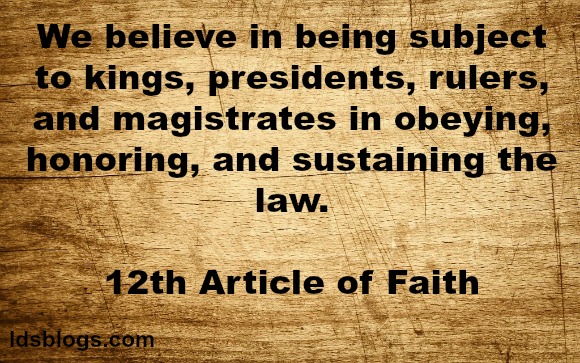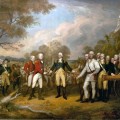Whatever makes men good Christians, makes them good citizens. —Daniel Webster
Please allow me just this once to stand on my soap box about a topic that is near and dear to my heart—citizenship. As I write this, I have just completed jury service—without ever having left my home. This is the second time in a row I have completed jury service without ever having to report to the jury commissioner’s office. In the past, I have actually reported for service, and I also served on a jury. It was a great learning experience. In a lot of places in the United States, it is now possible to check the court website each evening to see if you are required to report to the courthouse. How easy is that?! I have fulfilled my civic duty with five clicks of the mouse.
I spent many years in law offices as a legal secretary. It breaks my heart to report my observation that jury pools are getting dumber and dumber because intelligent people are refusing to do their civic duty. Heaven help me if I am ever at the mercy of a jury of my peers!
There are valid reasons for requesting to be disqualified from jury service, but those are the exception; not the rule. Medical conditions need to be taken into consideration, for example. Nursing mothers and those who don’t have an adequate understanding of the English language also have valid reasons for not serving. There are other reasons, as well, but never assume that you should ask for disqualification simply because you don’t want to, or because it’s too hard. Jury service is a civic duty. Just as military service and voting are important to the well being of our country, so is our judicial system.
Latter-day Saints value the organization and order that good government provides and believe in being responsible citizens of the nations and communities to which they belong. Citizenship refers to the obligation of Church members to fulfill their duties to their nations and communities in lawful ways that are consistent with “their inherent and inalienable rights” (Doctrine and Covenants 134:5) (The Church of Jesus Christ of Latter-day Saints, Citizenship).
Being responsible citizens also requires that we exercise our right to vote. It is a wonderful privilege—but also a great responsibility—to spend time in a polling booth. In many areas, the government has made voting easier than ever before with mail-in ballots, and even multiple voting days. How does anyone possibly justify complaining about the state of the union, or his/her individual community, if this right has not been exercised?
Be an educated voter. Thirty or sixty-second audio clips don’t tell the whole story, nor do they ever give an accurate description of the candidate and/or issue. Do your homework and make an educated decision. It is important to the health of our country and our communities.
Being a good citizen means more than just obeying the laws of the land. It also means being actively involved in making our community the best possible place for all to live. As we become good citizens of our community, we are doing the will of our Heavenly Father in that regard (Family Home Evening Resource Book, Citizenship (1997), 179).
What does it mean to be actively involved in our community? At the very least, it means to be informed on the issues and vote. Obviously, there are many ways we can go beyond that to serve in our communities depending on our individual circumstances.
At the beginning of this article, I quoted Daniel Webster. “Whatever makes men good Christians, makes them good citizens.” Christians try to be like Christ, which means to be responsible, kind, loving individuals. Good citizens are also responsible, kind, loving individuals. Good Christians don’t steal or murder; good citizens obviously don’t either. Good Christians respect the property of others; the same can be said for good citizens. Governments are created for the protection and safety of the people they govern. Good citizens (and good Christians) understand that and strive to protect and keep safe the government for the benefit of all.
Let no man break the laws of the land, for he that keepeth the laws of God hath no need to break the laws of the land. —Doctrine and Covenants 58:21
We believe in being subject to kings, presidents, rulers, and magistrates, in obeying, honoring, and sustaining the law. —Article of Faith, 12
I love that the Twelfth Article of Faith doesn’t just say obey the law. It says we must honor the law and sustain the law.
As members of The Church of Jesus Christ of Latter-day Saints, we should be ever vigilant in being good citizens of the country in which we live, as well as in our individual communities. It is indeed part of our doctrine. Take a few moments today and reflect on the state of your citizenship. If a course correction is needed, repent. Make being a good citizen a priority in your life. Truly live the Twelfth Article of Faith in obeying, honoring, and sustaining the law.
About Tudie Rose
Tudie Rose is a mother of four and grandmother of ten in Sacramento, California. You can find her on Twitter as @TudieRose. She blogs as Tudie Rose at http://potrackrose.wordpress.com. She has written articles for Familius. You will find a Tudie Rose essay in Lessons from My Parents, Michele Robbins, Familius 2013, at http://www.familius.com/lessons-from-my-parents.
Twitter •






